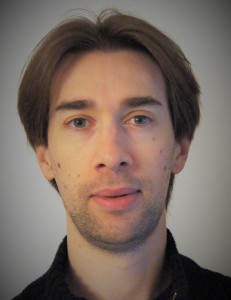
Greetings!
I am a French PhD Alumnus in English Linguistics in the fields of dialectology-sociolinguistics at the Albert-Ludwig university of Freiburg-im-Breisgau, Baden Württemberg, Germany.
I obtained my PhD degree on December 15th 2014 during an oral examination called “Disputation”. The purpose of my research is to describe and analyze the current morphosyntactic and semantic structures of dialectal combinations termed Multiple Modals (might can, will can, would could, won’t can, should ought to) spoken in Central and Southern Scotland.
My research questions are as follows:
How is the grammar of Multiple Modals used by the Southern Scottish people in the 2010’s?
What is allowed in terms of modal position and semantic ordering when Modal combinations are turned into the affirmative, negative or interrogative syntactic forms?
Can additional grammatical elements such as quantifiers or adverbs have an impact on the position of each modal, leading probably to changes in the meaning of the clause?
How diverse the number of modal sequences are in Southern Scotland? What is (not) possible to create in this vernacular grammatical environment?
My previous experiences in the field showed that grammatical rules are precise in Scots and Scottish-English vernaculars. It depends on the level of knowledge of modal combinations from the informants connected with their habits in the use of non-standard syntax. The number and diversity of dialectal features they use on a day-to-day basis and the frequency of use of these vernacular features are determined by the informants’ own life experiences. In the end, different trends appear from region to region and even between counties of a same region.
The main purpose is to get a complete overview of the syntax of the Multiple Modality system in the Lowland Scots area covering the Central and Southern areas of the country.
The distribution of Structured-Type questionnaires integrating extralinguistic components (social variables: age, gender, job, social class, cultural practice, traditions) will help me detect these complex syntactic differences and to better understand and analyze the grammatical preferences of the informants dwelling and/or working in the contemporary towns of the Lowlands .
At present I am looking for a full-time position as a post-doctoral researcher in a university that would be interested in this type of research on vernacular Scottish English syntax. Of course, I can work on many other aspects of English syntax and grammar in standard and/or non-standard varieties spoken in the Anglophone world. Being a lector would also be another alternative for me to get a rich professional experience as much in the field of English teaching as in the teaching of French to different foreign students by means of societal debates, picture descriptions, written essays, conversation activities and grammatical practice.
Ask me any questions in the chat section!
I’m looking forward to hearing from you!
Anthony R. BOUR